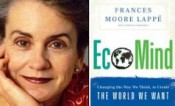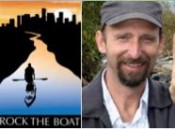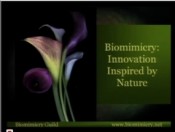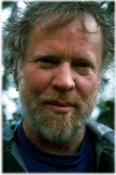Q&A: Frances Moore Lappé, Author – ECOMIND: CHANGING THE WAY WE THINK, TO CREATE THE WORLD WE WANT
Written on October 2nd, 2014 |
Aired: 9/8/13
Originally Aired: 12/30/12
Where do you think the most important changes need to take place to turn things around in terms of big issues like the economy, the environment, and social justice?
Some might say climate change is the critical global issue so it must be clean energy. Others might say nothing will make as much difference for the world’s people as educating and empowering girls and women. Closer to home, a case can be made that public financing of political campaigns would have the most impact on all such issues by making it possible for the power of the United States to become a greater force for good.
All good answers, but this week’s guest gives another answer – and its one that I share. Frances Moore Lappe, who has herself been a force for good at least since the publication of the phenomenal best-seller Diet for a Small Planet in 1971, says that the greatest impact would follow from changing our minds.
In her 18th book, ECOMIND: CHANGING THE WAY WE THINK, TO CREATE THE WORLD WE WANT, Lappé argues that much of what is wrong with the world, from eroding soil to eroding democracies, results from ways of thinking that are out of sync with human nature and nature’s rhythms. Humans are doers, she says. But our capacity for doing is undermined by seven “thought traps” that leave us mired in fear, guilt, and despair — none of which are motivators to action.
Drawing on the latest research in climate studies, anthropology, and neuroscience, she weaves her analysis together with stories of real people the world over, who, having shifted some basic thought patterns, now shift the balance of power in our world. Chapter-by-chapter, Lappé takes us from “thought trap” to “thought leap,” and with each shift, challenges become opportunities.
Free Forum Q&A – GEORGE WOLFE of L.A. River Expeditions & THEA MERCOUFFER, filmmaker of ROCK THE BOAT
Written on July 18th, 2013 |
Aired: 07/14/13
How many of you know where the LA River is…where it starts, where it runs, where it ends? Okay, how many believe anyone could kayak down the entire river – all 51 miles of it – beginning in Canoga Park in the San Fernando Valley and finally passing the Queen Mary to enter the Pacific in the Port of Long Beach? My next guests believed it was possible, and proved it in 2008, changing the course, if you will, of the river for us all. For the first time in decades, kayaking and fishing are now legal along the waterway, and The L.A. River: used, abused and forgotten, is now at the center of a major vision to transform this concrete metropolis into a more sustainable model city for the 21st century.
My guests will be GEORGE WOLFE of LA River Expeditions and THEA MERCOUFFER producer-director of the film ROCK THE BOAT that documents the successful campaign by Wolfe and others to have the LA River declared a navigable river and open sections of it to boats and kayaks.
Q&A: JANINE BENYUS, Natural Sciences Writer – Biomimicry
Written on June 17th, 2011 |
Aired 06/12/11
JANINE BENYUS is a natural sciences writer, innovation consultant, and author of six books, including Biomimicry: Innovation Inspired by Nature. Since the book's 1997 release, Janine has evolved the practice of biomimicry, consulting with sustainable business, academic, and government leaders. Janine has co-founded the Biomimicry Guild, the Biomimicry Institute, and the web portal http://www.asknature.org/ to further this work. Her next book will be Nature's Code.
Q&A: RICK STEINER, Marine conservation specialist Professor, University of Alaska
Written on September 7th, 2010 |
Aired 09/05/10
RICK STEINER served as a marine conservation professor with the University of Alaska from 1980-2010, stationed in the Arctic, Prince William Sound, and Anchorage. He was responsible for the University's conservation and sustainability extension effort, and was producer/host of the Alaska Resource Issues Forum, a public television program on controversial natural resource issues. He advised the emergency response to the Exxon Valdez Oil Spill in 1989 and helped found the Regional Citizens Advisory Councils and the Prince William Sound Science Center. He advises the UN, governments, NGOs, and industry on oil spill prevention, response, assessment, and restoration.
Steiner learned about oil spills the hard way -- in Valdez Harbor. He learned about academic politics the same way, losing federal grant funding for outspoken criticism of the oil industry.
